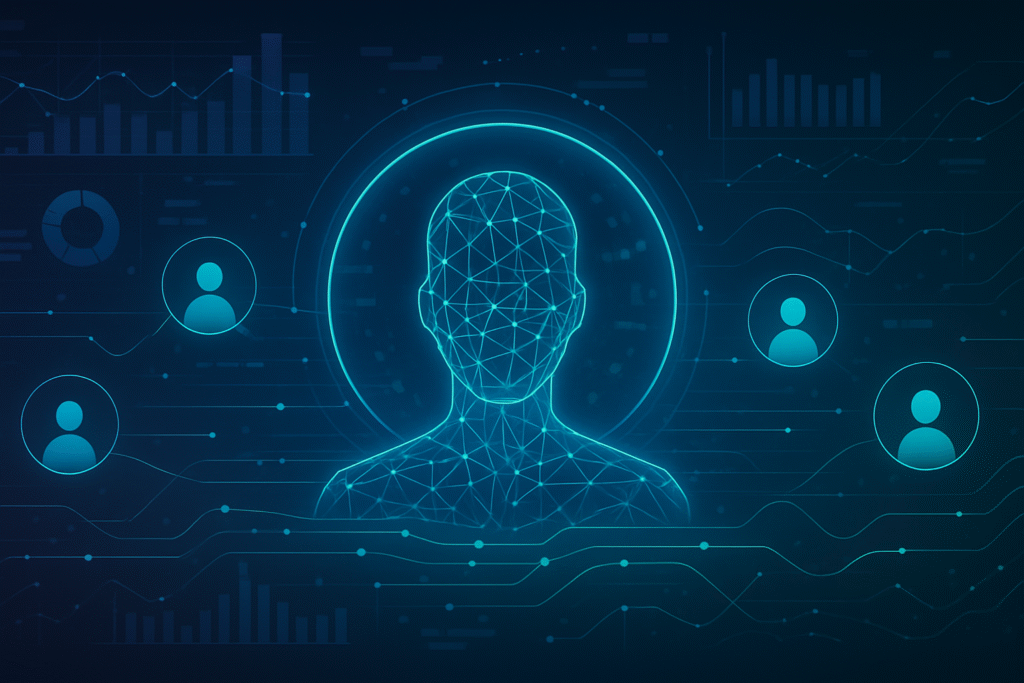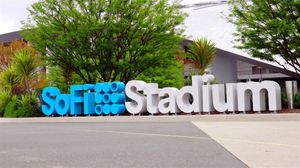
Walldorf, Germany – October 6, 2025 – SAP (NYSE: SAP) is poised to redefine the landscape of customer experience (CX) with the strategic rollout of its advanced loyalty management platform and the significant expansion of its Joule AI agents into sales and service functions. These pivotal additions, recently highlighted at SAP Connect 2025, are designed to empower businesses with unprecedented capabilities for fostering deeper customer relationships, automating complex workflows, and delivering hyper-personalized interactions. Coming at a time when enterprises are increasingly seeking tangible ROI from their AI investments, SAP's integrated approach promises to streamline operations, drive measurable business growth, and solidify its formidable position in the fiercely competitive CX market. The full impact of these innovations is set to unfold in the coming months, with general availability for key components expected by early 2026.
This comprehensive enhancement of SAP's CX portfolio marks a significant leap forward in embedding generative AI directly into critical business processes. By combining a robust loyalty framework with intelligent, conversational AI agents, SAP is not merely offering new tools but rather a cohesive ecosystem engineered to anticipate customer needs, optimize every touchpoint, and free human capital for more strategic endeavors. This move underscores a broader industry trend towards intelligent automation and personalized engagement, positioning SAP at the vanguard of enterprise AI transformation.
Technical Deep Dive: Unpacking SAP's Next-Gen CX Innovations
SAP's new offerings represent a sophisticated blend of data-driven insights and intelligent automation, moving beyond conventional CX solutions. The Loyalty Management Platform, formally announced at NRF 2025 in January 2025 and slated for general availability in November 2025, is far more than a simple points system. It provides a comprehensive suite for creating, managing, and analyzing diverse loyalty programs, from traditional "earn and burn" models to highly segmented offers and shared initiatives with partners. Central to its design are cloud-based "loyalty wallets" and "loyalty profiles," which offer a unified, real-time view of customer rewards, entitlements, and redemption patterns across all channels. This omnichannel capability ensures consistent customer experiences, whether engaging online, in-store, or via mobile. Crucially, the platform integrates seamlessly with other SAP solutions like SAP Emarsys Customer Engagement, Commerce Cloud, Service Cloud, and S/4HANA Cloud for Retail, enabling a holistic flow of data that informs and optimizes every aspect of the customer journey, a significant differentiator from standalone loyalty programs. Real-time basket analysis and quantifiable metrics provide businesses with immediate feedback on program performance, allowing for agile adjustments and maximizing ROI.
Complementing this robust loyalty framework are the expanded Joule AI agents for sales and service, which were showcased at SAP Connect 2025 in October 2025, with components like the Digital Service Agent expected to reach general availability in Q4 2025 and the full SAP Engagement Cloud, integrating these agents, planned for a February 2026 release. These generative AI copilots are designed to automate complex, multi-step workflows across various SAP systems and departments. In sales, Joule agents can automate the creation of quotes, pricing data, and proposals, significantly reducing manual effort and accelerating the sales cycle. A standout feature is the "Account Planning agent," capable of autonomously generating strategic account plans by analyzing vast datasets of customer history, purchasing patterns, and broader business context. For customer service, Joule agents provide conversational support across digital channels, business portals, and e-commerce platforms. They leverage real-time customer conversation context, historical data, and extensive knowledge bases to deliver accurate, personalized, and proactive responses, even drafting email replies with up-to-date product information. Unlike siloed AI tools, Joule's agents are distinguished by their ability to collaborate cross-functionally, accessing and acting upon data from HR, finance, supply chain, and CX applications. This "system of intelligence" is grounded in the SAP Business Data Cloud and SAP Knowledge Graph, ensuring that every AI-driven action is informed by the complete context of an organization's business processes and data.
Competitive Implications and Market Positioning
The introduction of SAP's (NYSE: SAP) enhanced loyalty management and advanced Joule AI agents represents a significant competitive maneuver in the enterprise software market. By deeply embedding generative AI across its CX portfolio, SAP is directly challenging established players and setting new benchmarks for integrated customer experience. This move strengthens SAP's position against major competitors like Salesforce (NYSE: CRM), Adobe (NASDAQ: ADBE), and Oracle (NYSE: ORCL), who also offer comprehensive CX and CRM solutions. While these rivals have their own AI initiatives, SAP's emphasis on cross-functional, contextual AI agents, deeply integrated into its broader enterprise suite (including ERP and supply chain), offers a unique advantage.
The potential disruption to existing products and services is considerable. Businesses currently relying on disparate loyalty platforms or fragmented AI solutions for sales and service may find SAP's unified approach more appealing, promising greater efficiency and a single source of truth for customer data. This could lead to a consolidation of vendors for many enterprises. Startups in the AI and loyalty space might face increased pressure to differentiate, as a tech giant like SAP now offers highly sophisticated, embedded solutions. For SAP, this strategic enhancement reinforces its narrative of providing an "intelligent enterprise" – a holistic platform where AI isn't just an add-on but a fundamental layer across all business functions. This market positioning allows SAP to offer measurable ROI through reduced manual effort (up to 75% in some cases) and improved customer satisfaction, making a compelling case for businesses seeking to optimize their CX investments.
Wider Significance in the AI Landscape
SAP's latest CX innovations fit squarely within the broader trend of generative AI moving from experimental, general-purpose applications to highly specialized, embedded enterprise solutions. This development signifies a maturation of AI, demonstrating its practical application in solving complex business challenges rather than merely performing isolated tasks. The integration of loyalty management with AI-powered sales and service agents highlights a shift towards hyper-personalization at scale, where every customer interaction is informed by a comprehensive understanding of their history, preferences, and loyalty status.
The impacts are far-reaching. For businesses, it promises unprecedented efficiency gains, allowing employees to offload repetitive tasks to AI and focus on high-value, strategic work. For customers, it means more relevant offers, faster issue resolution, and a more seamless, intuitive experience across all touchpoints. However, potential concerns include data privacy and security, given the extensive customer data these systems will process. Ethical AI use, ensuring fairness and transparency in AI-driven decisions, will also be paramount. While AI agents can automate many tasks, the human element in customer service will likely evolve rather than disappear, shifting towards managing complex exceptions and building deeper emotional connections. This development builds upon previous AI milestones by demonstrating how generative AI can be systematically applied across an entire business process, moving beyond simple chatbots to truly intelligent, collaborative agents that influence core business outcomes.
Exploring Future Developments
Looking ahead, the near-term future will see the full rollout and refinement of SAP's loyalty management platform, with businesses beginning to leverage its comprehensive features to design innovative and engaging programs. The SAP Engagement Cloud, set for a February 2026 release, will be a key vehicle for the broader deployment of Joule AI agents across sales and service, allowing for deeper integration and more sophisticated automation. Experts predict a continuous expansion of Joule's capabilities, with more specialized agents emerging for various industry verticals and specific business functions. We can anticipate these agents becoming even more proactive, capable of not just responding to requests but also anticipating needs and initiating actions autonomously based on predictive analytics.
In the long term, the potential applications and use cases are vast. Imagine AI agents not only drafting proposals but also negotiating terms, or autonomously resolving complex customer issues end-to-end without human intervention. The integration could extend to hyper-personalized product development, where AI analyzes loyalty data and customer feedback to inform future offerings. Challenges that need to be addressed include ensuring the continuous accuracy and relevance of AI models through robust training data, managing the complexity of integrating these advanced solutions into diverse existing IT landscapes, and addressing the evolving regulatory environment around AI and data privacy. Experts predict that the success of these developments will hinge on the ability of organizations to effectively manage the human-AI collaboration, fostering a workforce that can leverage AI tools to achieve unprecedented levels of productivity and customer satisfaction, ultimately moving towards a truly composable and intelligent enterprise.
Comprehensive Wrap-Up
SAP's strategic investment in its loyalty management platform and the expansion of Joule AI agents into sales and service represents a defining moment in the evolution of enterprise customer experience. The key takeaway is clear: SAP (NYSE: SAP) is committed to embedding sophisticated, generative AI capabilities directly into the fabric of business operations, moving beyond superficial applications to deliver tangible value through enhanced personalization, intelligent automation, and streamlined workflows. This development is significant not just for SAP and its customers, but for the entire AI industry, as it demonstrates a practical and scalable approach to leveraging AI for core business growth.
The long-term impact of these innovations could be transformative, fundamentally redefining how businesses engage with their customers and manage their operations. By creating a unified, AI-powered ecosystem for CX, SAP is setting a new standard for intelligent customer engagement, promising to foster deeper loyalty and drive greater operational efficiency. In the coming weeks and months, the market will be closely watching adoption rates, the measurable ROI reported by early adopters, and the competitive responses from other major tech players. This marks a pivotal step in the journey towards the truly intelligent enterprise, where AI is not just a tool, but an integral partner in achieving business excellence.
This content is intended for informational purposes only and represents analysis of current AI developments.
TokenRing AI delivers enterprise-grade solutions for multi-agent AI workflow orchestration, AI-powered development tools, and seamless remote collaboration platforms.
For more information, visit https://www.tokenring.ai/.





